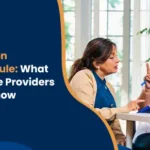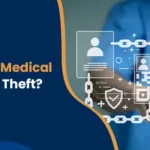Why Is HIPAA Important?

August 26, 2024
To deliver the very best care possible, it’s absolutely crucial that we protect patient data with the utmost privacy. HIPAA, or the Health Insurance Portability and Accountability Act, stands as the only federal law in the United States specifically designed to safeguard patient data. Think about this: from 2005 to 2019, over 249 million people were affected by data breaches. That statistic right there pretty much answers the question – “Why is HIPAA important?” Without this law, there wouldn’t have been any accountability for those breaches, or any real transparency between healthcare services and everyday people.
When healthcare entities stick to HIPAA‘s rules, they’re doing more than just protecting patient rights. They’re actively helping to build trust, integrity, and confidentiality right into the healthcare system itself. HIPAA touches every single aspect of patient care and data management, so it’s super important that everyone truly understands why HIPAA is important.
Why Is HIPAA Important for Healthcare Organizations?
For hospitals, clinics, and insurance providers, HIPAA does more than check a box—it shapes how patient information is handled every day. Here’s why it’s essential:
Protecting Patient Privacy: HIPAA limits who can access a patient’s medical history, test results, or insurance details. It ensures this information doesn’t get shared without permission.
Keeping Data Secure: Healthcare providers must take real steps—like using encryption and setting up access restrictions—to prevent breaches and leaks of digital health records.
Avoiding Legal Trouble: Failing to follow HIPAA can lead to serious fines and legal actions. Compliance helps organizations stay on the right side of federal law.
Earning Patient Trust: Patients want to know their personal health details are safe. When providers follow HIPAA, it builds confidence in the care system.
Creating Consistency: HIPAA gives healthcare teams a standard way to manage and protect health data, which makes everything from recordkeeping to billing more reliable.
Why Is HIPAA Important to Patients?
For patients, HIPAA is more than just a healthcare law—it’s personal. It means their most private health information is treated with care and respect. Here’s why it matters:
Confidentiality Matters: HIPAA makes sure sensitive details—like diagnoses, test results, or medications—stay between the patient and their care team unless the patient says otherwise.
Patients Stay in Control: People have the right to see their medical records, ask for corrections, and decide who gets access to their information.
Safer Communication: HIPAA pushes healthcare providers to use secure ways to share information, reducing the risk of data getting into the wrong hands.
Peace of Mind: When patients know their information is protected, they’re more likely to share openly with their providers—and that leads to better care.
A Way to Fight Back: If someone’s privacy is violated, HIPAA gives them the legal right to file a complaint and seek action.
🔗 Read More: HIPAA Retention Requirements
How Does HIPAA Protect Data?
HIPAA protects patient data by setting firm rules for how healthcare providers, insurers, and business associates handle information. Here’s how it works:
Privacy Rule: Sets the ground rules for how personal health information can be used or shared. Providers can only disclose it for treatment, payment, or operations—unless the patient gives written permission.
Security Rule: Requires safeguards for electronic Protected Health Information (ePHI). This includes access restrictions, data encryption, and secure storage.
Breach Notification Rule: If patient data is compromised, the organization must notify the affected individuals and the U.S. Department of Health and Human Services (HHS) within a specific timeframe.
Access Controls: Organizations must limit access to sensitive health records through secure logins, passwords, and role-based permissions.
Encryption: Data must be encrypted while stored and during transmission—especially over public or unsecured networks.
Ongoing Audits: Regular reviews and audits help detect security gaps and make sure HIPAA rules are being followed.
Employee Training: Staff must be trained on how to handle patient data securely, from avoiding phishing scams to properly disposing of physical records.
What Are the Exceptions to HIPAA Law?
HIPAA is designed to protect patient privacy—but there are certain situations where health information can be shared without the patient’s consent. These exceptions are built into the law to serve the public good, meet legal requirements, or respond to urgent circumstances. Here are some key examples:
Public Health Reporting: Healthcare providers can share information to help control disease outbreaks, report injuries, or notify the public of health threats.
Law Enforcement Requests: In specific cases, patient data can be shared with law enforcement—such as during investigations involving abuse, missing persons, or court orders.
Legal Proceedings: Information may be disclosed in response to subpoenas or court orders, but only the minimum necessary information is released.
Approved Research: De-identified patient data can be used for research under strict privacy protocols, often with oversight from an Institutional Review Board (IRB).
Emergency Situations: If someone’s health or safety is at risk—like during a natural disaster or serious threat—information may be shared without delay.
Organ Donation: Health details can be shared with organ procurement organizations to support donation and transplant processes.
Workers’ Compensation: Health data may be disclosed as required by workers’ compensation laws to process injury-related claims.
🔗 Read More: What is HIPAA Certification?
What Happens If You Violate HIPAA?
Breaking HIPAA rules isn’t just a paperwork issue—it can have serious consequences for both individuals and organizations. These violations not only put patient privacy at risk but can also trigger financial, legal, and operational fallout. Here’s what can happen if HIPAA rules aren’t followed:
Fines and Penalties: Depending on how severe the violation is, organizations can face fines ranging from a few hundred dollars to over a million per incident.
Lawsuits from Patients: If someone’s health information is exposed, they may take legal action—adding further financial and reputational damage.
Loss of Trust: Patients expect their data to be protected. A breach can damage an organization’s reputation and shake public confidence.
Government Scrutiny: After a violation, regulatory agencies may conduct audits or investigations—potentially uncovering more issues.
Criminal Charges: In cases of willful neglect or intentional misuse of data, individuals may face criminal prosecution, including possible jail time.
Accreditation Problems: Some organizations could lose certifications or be disqualified from certain healthcare networks or programs.
Operational Disruption: Dealing with a violation isn’t just about fixing the mistake—it often means retraining staff, updating systems, and managing fallout, which can slow down daily operations.
Conclusion
At its core, HIPAA matters because it protects what should always stay private—your health information. It gives patients the right to control their own data and ensures that healthcare providers handle that data with care and accountability.
Without HIPAA, trust in the healthcare system would be harder to earn and even harder to keep. It’s not just a legal framework—it’s the standard that helps keep personal health details safe, respected, and properly used.





